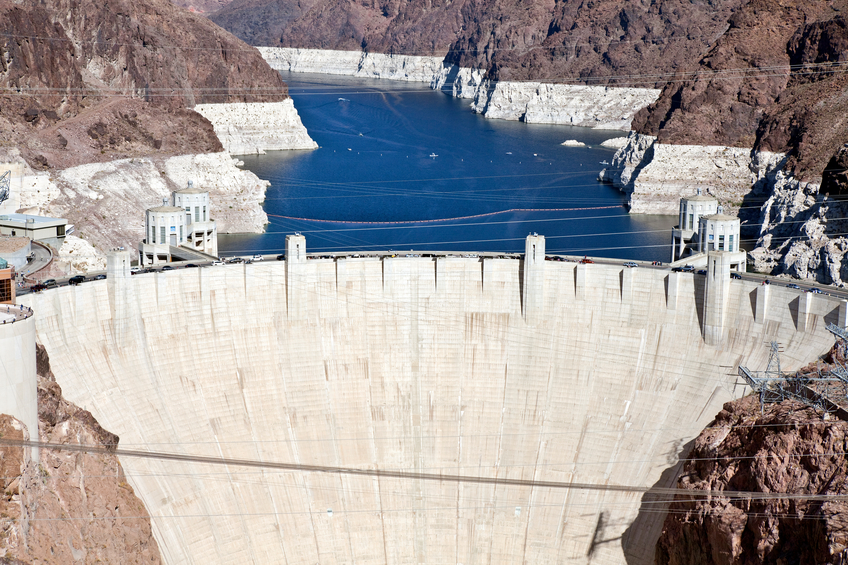Ohio Geotechnical and Ethics 30 PDH Discount Package 2
Courses in this Package
Rock Foundations (G09-001)
Design and Construction of Earth and Rock-Fill Dams (G07-001)
Dam Safety Risk Management (C03-060)
Selecting and Accommodating Inflow Design Floods for Dams (C04-055)
Durability of Geosynthetics for Highway Applications (C01-018)
Tunnel Operations, Maintenance, Inspection, and Evaluation Manual: Evaluation (C02-073)
Tunnel Operations, Maintenance, Inspection, and Evaluation Manual: Maintenance (C02-074)
Ethics in Professional Practice (LE2-007)

This online engineering PDH course presents the guidelines for the design of rock foundations supporting various types of structures and embankments. These guidelines include information on foundation exploration and testing procedures, load test methods, analysis techniques, design criteria and procedures, and construction considerations. These guidelines provide a minimum standard to be used for planning a satisfactory rock foundation design for a typical situation.
This 9 PDH online course is applicable to geotechnical and structural engineers, geologists, as well as design and construction personnel involved in the design of rock foundations.
This PE continuing education course is intended to provide you with the following specific knowledge and skills:
- Foundation design considerations and factor of safety
- Site investigation techniques and procedures
- Rock mass characterization and classification schemes
- Foundation deformation and settlement analysis, estimation and treatment
- Foundation bearing capacity analysis, estimation and treatment
- Sliding stability assessment of gravity structures and slopes cut into rock mass
- Design of rock anchorage systems
- Selection of appropriate geotechnical instrumentation.
- Construction considerations of foundations and cut slopes in rock masses
- Recognizing and treating special conditions
In this professional engineering CEU course, you need to review the US Corps of Engineers Publication EM 1110-1-2908, "Rock Foundations"
Upon successful completion of the quiz, print your Certificate of Completion instantly. (Note: if you are paying by check or money order, you will be able to print it after we receive your payment.) For your convenience, we will also email it to you. Please note that you can log in to your account at any time to access and print your Certificate of Completion.

This online engineering PDH course presents the fundamental principles underlying the design, construction, performance monitoring and modifications of earth and rock-fill dams. The design and construction of earth and rock-fill dams are complex because of the nature of the varying foundation conditions and range of properties of the materials available for use in the embankment.
The successful design, construction, and operation of a reservoir project over the full range of loading require a comprehensive site characterization, a detailed design of each feature, construction supervision, measurement and monitoring of the performance, and the continuous evaluation of the project features during operation.
This 7 PDH online course is applicable to geotechnical and structural engineers, geologists, design and construction personnel who are involved with the design and construction of earth and rock-fill dams.
This PE continuing education course is intended to provide you with the following specific knowledge and skills:
- Geological and subsurface explorations
- General design considerations and performance parameters
- Foundation and abutment preparation
- Seepage control methods
- Design of embankments and appurtenant structures
- General construction considerations
- Types of instrumentation
In this professional engineering CEU course, you need to review the US Corps of Engineers Publication EM 1110-2-2300, "General Design and Construction Considerations for Earth and Rock-Fill Dams".
Upon successful completion of the quiz, print your Certificate of Completion instantly. (Note: if you are paying by check or money order, you will be able to print it after we receive your payment.) For your convenience, we will also email it to you. Please note that you can log in to your account at any time to access and print your Certificate of Completion.

This engineering online PDH covers the basic guidelines and principles of dam risk management.
Risk management is the overarching activity when risk is used to inform dam safety decision making and builds on risk analysis and risk assessment phases. It encompasses activities related to making risk-informed decisions, prioritizing evaluations of risk, prioritizing risk reduction activities, and making program decisions associated with managing a portfolio of facilities. Risk management includes evaluating the environmental, social, cultural, ethical, political, and legal considerations during all parts of the process.
This 3 PDH online course is applicable to geotechnical and civil engineers, as well as other technical personnel who are interested in gaining a better understanding of dam risk management in order to make risk-informed decisions.
This PE continuing education course is intended to provide you with the following specific knowledge and skills:
- Learning about the dam safety risk management framework for decision making
- Understanding the aspects and components of Risk Analysis (i.e. types, estimation & results)
- Understanding the aspects and components of Risk Assessment (i.e. process, safety decision making approach & tolerable risk)
- Understanding the aspects and components of Risk Management (i.e. objectives, urgency of action & prioritization)
- Familiarization with the aspects and components of Risk Communication and public awareness
Upon successful completion of the quiz, print your Certificate of Completion instantly. (Note: if you are paying by check or money order, you will be able to print it after we receive your payment.) For your convenience, we will also email it to you. Please note that you can log in to your account at any time to access and print your Certificate of Completion.

This online engineering PDH provides basic guidelines for selecting and accommodating inflow design floods for dams based on current and accepted practices.
Appropriate selection of the Inflow Design Flood is the first step in evaluating and designing a dam to address hydrologic potential failure modes and reduce risks to the public. Existing guidelines of most state and federal agencies for evaluating the hydrologic safety of dams were written in the late 1970s. Since that time, significant technological and analytical advances have led to better watershed and rainfall information, improvements in the analysis of extreme floods, greater sophistication in means to quantify incremental dam failure consequences, and tools for evaluating hydrologic events in a risk-based context.
This 4 PDH online course is applicable to geotechnical and civil engineers, dam owners or regulators, and other technical personnel interested in gaining a better knowledge on inflow design floods for dams.
This PE continuing education course is intended to provide you with the following specific knowledge and skills:
- Learning about the dam classification system
- Understanding the guidelines for selecting the inflow design flood
- Learning about spillway characteristics (mainly controlled versus uncontrolled)
- Familiarizing with routing the inflow design flood
- Familiarizing with freeboard requirements
- Defining terminology and acronyms associated with the overall scope of the course
Upon successful completion of the quiz, print your Certificate of Completion instantly. (Note: if you are paying by check or money order, you will be able to print it after we receive your payment.) For your convenience, we will also email it to you. Please note that you can log in to your account at any time to access and print your Certificate of Completion.

This online engineering PDH course presents a study that addresses various aspects of geosynthetic durability to develop procedures that could be used to predict long-term strength losses of geosynthetics used in highway applications. These procedures are essential to designers for allowing tensile capacity for geosynthetics used primarily in mechanically stabilized earth (MSE) retaining walls, reinforced soil slopes, and foundation stabilization.
This study was initiated to allow voiced concerns that stress-cracking potential was not being considered in developing the allowable tension load capacity for design when using high-density polyethylene (HDPE) geogrids. Stress cracking is a potential mode of failure occurring in thermoplastic materials that are under a sustained stress significantly lower than the material’s room temperature yield strength, resulting in quasi-brittle fracture of the material. This is also known as slow crack growth and environmental stress cracking (ESC) when in contact with certain aqueous solutions.
This 1 PDH online course is applicable to all civil engineers, highway design professionals, transportation planners, material manufacturers and all personnel interested in learning about geosynthetics for highway applications.
This PE continuing education course is intended to provide you with the following specific knowledge and skills:
- Developing testing protocols necessary to quantify any strength reduction due to aging or stress mechanisms for geosynthetics
- Developing testing protocols for confined stress-strain testing, which could more accurately characterize key engineering properties
Upon successful completion of the quiz, print your Certificate of Completion instantly. (Note: if you are paying by check or money order, you will be able to print it after we receive your payment.) For your convenience, we will also email it to you. Please note that you can log in to your account at any time to access and print your Certificate of Completion.

This engineering online PDH course will provide an overview on the evaluation of tunnel systems and the associated components. The components explored in this chapter include the typical personnel involved, supplemental inspection and testing methods, risk-based assessments, priority classification, and basic cost estimating. Information is also provided on load rating.
Evaluations are normally performed after the inspection data is received. Sound engineering judgment is used to evaluate the consequences of tunnel system or component failure in terms of overall safety, service level, and costs. In some instances, supplementary inspections and testing may be needed where data is lacking. Risk assessment techniques should include strategies for deploying, operating, maintaining, upgrading, and disposing of tunnel system components in a cost-effective manner.
This 2 PDH online course is applicable to civil and structural engineers, as well as design and construction personnel involved with the evaluation process of tunnel systems.
This PE continuing education course is intended to provide you with the following specific knowledge and skills:
- Understanding the evaluation criteria and methods of tunnel systems
- Identifying the typical personnel involved in tunnel evaluation procedures
- Familiarization with different testing methods
- Understanding risk-based assessments
- Recognizing priority classification
- Understanding the basics of cost estimating
Upon successful completion of the quiz, print your Certificate of Completion instantly. (Note: if you are paying by check or money order, you will be able to print it after we receive your payment.) For your convenience, we will also email it to you. Please note that you can log in to your account at any time to access and print your Certificate of Completion.

This engineering online PDH course will provide an overview on effective maintenance considerations of tunnel systems and the associated components.
An effective maintenance program helps reduce costs, decrease the number of tunnel closures, increase public safety, and ensure adequate levels of service. To maximize efficient use of resources and minimize costs, maintenance programs should be optimized. When large-scale repairs and upgrades are implemented, these projects are typically referred to as tunnel rehabilitation.
This 2 PDH online course is applicable to civil and structural engineers, as well as design and construction personnel involved with the maintenance process of tunnel systems.
This PE continuing education course is intended to provide you with the following specific knowledge and skills:
- Understanding the fundamental causes of deterioration and corrosion in tunnels.
- Familiarization with the methods aimed at controlling groundwater seepage.
- Familiarization with the repair techniques and rehabilitation schemes.
Upon successful completion of the quiz, print your Certificate of Completion instantly. (Note: if you are paying by check or money order, you will be able to print it after we receive your payment.) For your convenience, we will also email it to you. Please note that you can log in to your account at any time to access and print your Certificate of Completion.

In this online engineering PDH course, background on the philosophical models that guide ethical behavior is discussed and then applied to specific situations in engineering codes of ethics. This course is based on the American Society of Mechanical Engineers Professional Practice Curriculum, Volume 8, Section: Engineering Ethics.
Many engineering organizations have drafted codes of ethics to which their members are required to commit. Generally, these codes are quite similar and are based on a few fundamental principles which provide guidance to professional engineers in common situations. Nevertheless, there are many difficult or ambiguous situations in which the best ethical solution is difficult to determine.
This 2 PDH online course is intended primarily for engineers seeking to learn ethical principles and how to apply them to their professional practice.
This PE continuing education course is intended to provide you with the following specific knowledge and skills:
-
Determining ethical behavior using several philosophical models
-
Evaluating a practical situation in terms of a professional code of ethics
-
Identifying situations that represent conflicts of interest and formulate a proper response
-
Applying the standards of professional ethics in technical communication
-
Recognizing environmental impacts of engineering work
-
Considering principles of sustainable development in the performance of professional duties
In this professional engineering CEU course, you need to review "Ethics in Professional Practice" published by the American Society of Mechanical Engineers (ASME). (This course document is reproduced by permission of the ASME (www.asme.org). You may also download from or view this course document on the ASME's website by clicking on Ethics in Professional Practice).
Once you complete your course review, you need to take a multiple-choice quiz consisting of fifteen (15) questions to earn 2 PDH credit. The quiz will be based on this ASME publication.
Upon successful completion of the quiz, print your Certificate of Completion instantly. (Note: if you are paying by check or money order, you will be able to print it after we receive your payment.) For your convenience, we will also email it to you. Please note that you can log in to your account at any time to access and print your Certificate of Completion.